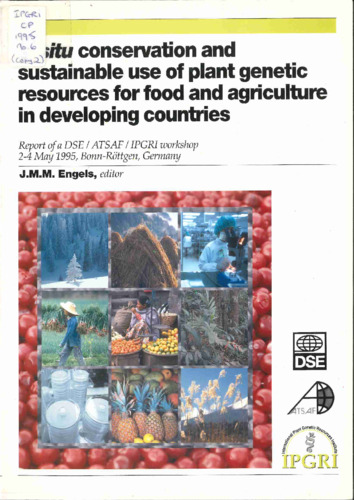In situ conservation and sustainable use of plant genetic resources for food and agriculture in developing countries: Report of a DSE/ATSAF/IPGRI Workshop, Bonn-Rottgen (Germany) 2-4 May 1995
This publication reports the workshop on in situ conservation and sustainable use of plant genetic resources for food and agriculture. The workshop was the continuation of an initiative which began in May 1990 when the Council for Tropical and Sub-Tropical Agricultural Research (ATSAF) and the International Board for Plant Genetic Resources (IBPGR), now International Plant Genetic Resources Institute (IPGRI), organized the first workshop in which German and IBPGR scientists met to ”strengthen the relationship between IBPGR and German scientists by establishing research contacs and collaboration”. This workshop resulted in a number of complementary funded projects including Refinement of Cryopreservation Techniques for Potato, Effective Pollination Control Methods in the Regeneration of Germplasm, and Spatial and Temporal Distribution of Genetic Diversity in Wild Forage Species under Stress Conditions. The convention on Biological Diversity emphasizes the importance of in situ conservation of plant genetic resources referring to the evolutionary process which sustains and develops genetic resources. Explicitly included is the in situ conservation of cultivated species in agricultural areas where farming systems and landraces were developed. The objective of the workshop was to contribute to conservation and sustainable use of plant genetic resources for food and agriculture, including forestry, through: increased understanding of in situ (including on-farm) conservation, integration of conservation strategies (in situ and ex situ), increased cooperation between IPGRI and parties in Germany and initiation of joint (IPGRI/German) Projects.

